The Benefits of Feeding Your Guinea Pig Hay: A Guide
Discover all the different reasons why you should be feeding your guinea pig hay and how it can improve their overall health. Enjoy reading!
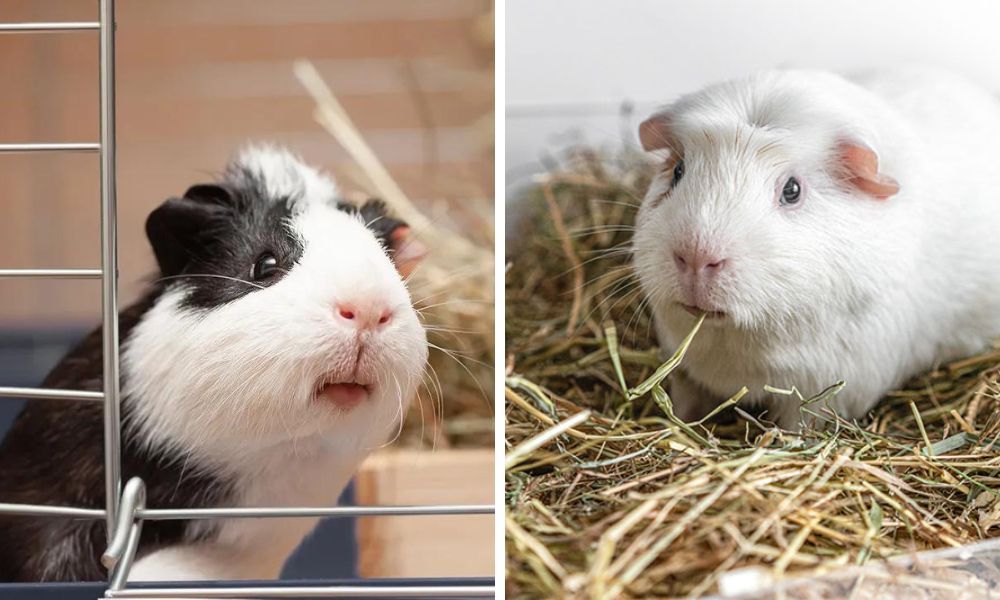
Key Takeaways:
- Hay is essential for a guinea pig's diet, providing necessary nutrients and aiding in dental health.
- Different types of hay, such as timothy, orchard grass, and alfalfa, offer varied benefits for guinea pigs.
- Incorporating hay into your guinea pig's daily routine ensures a balanced diet and promotes overall well-being.
Introduction
Feeding your guinea pigs hay is not just a dietary choice; it's a cornerstone of their health and happiness. Guinea pigs, like other small animals, thrive on a diet rich in hay, which provides essential nutrients and helps maintain their dental health. In this article, we'll explore the myriad benefits of feeding your guinea pigs hay, the different types available, and how to incorporate it into their daily routine.
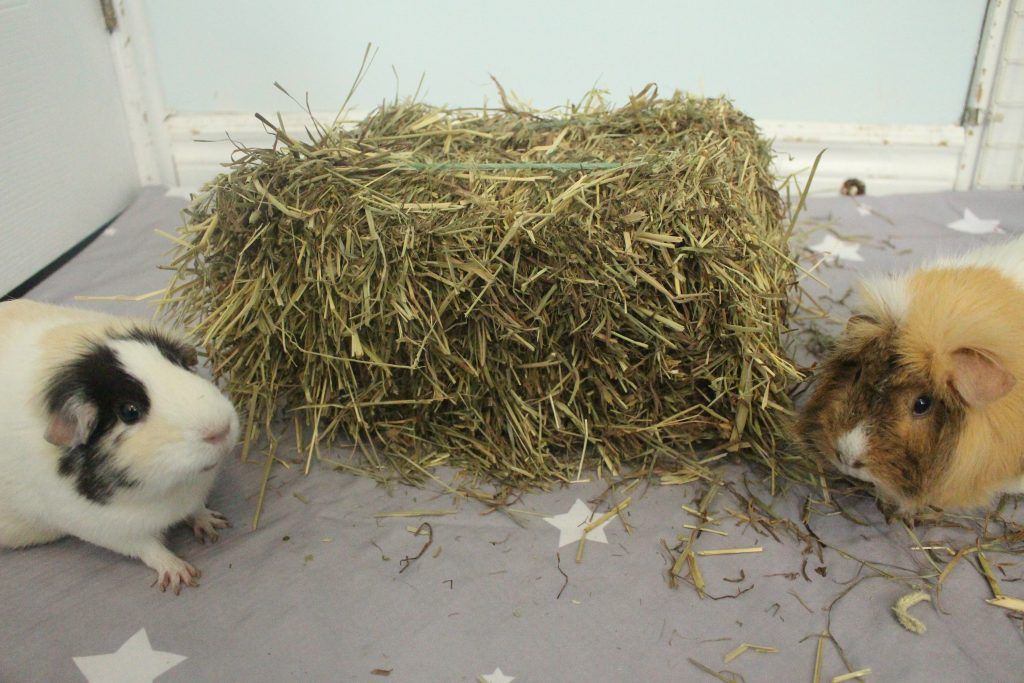
The Nutritional Profile of Hay
Hay is a powerhouse of nutrients that guinea pigs need to stay healthy. It consists of fiber, vitamins, and minerals that are crucial for their digestive system. Unlike other food items, hay provides a perfect balance of nutrients that guinea pigs require.
For instance, timothy hay is rich in fiber and low in protein, making it an ideal choice for adult guinea pigs. On the other hand, alfalfa hay is high in protein and calcium, which is beneficial for young guinea pigs and pregnant females. By offering a variety of hay, you can ensure that your guinea pig gets a well-rounded diet. It is essential to your guinea pig's health and happiness.
Dental Health Benefits
One of the most significant benefits of feeding your piggie hay is its impact on their dental health. Guinea pigs have continuously growing teeth, and chewing on hay helps wear them down naturally. This prevents dental problems that can be both painful and harmful.
Timothy hay, with its coarse texture, is particularly effective in keeping your guinea pig's teeth in check. Regular chewing on hay also stimulates saliva production, which helps in preventing dental diseases. So, if you want to keep your guinea pig's teeth healthy, hay is the way to go.
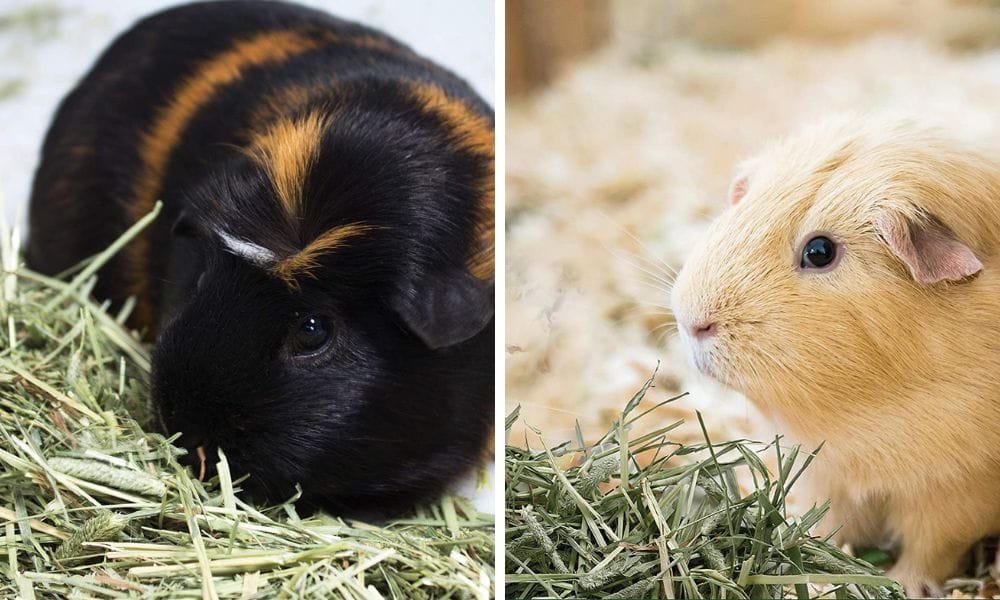
Different Types of Hay
There are several types of hay available, each with its unique benefits. Timothy hay is the most popular choice due to its balanced nutritional profile. It's perfect for adult guinea pigs and can be mixed with other types of hay for variety.
Orchard grass is another excellent option, known for its soft texture and sweet smell. It's a great alternative for guinea pigs that might be picky eaters. Alfalfa hay, as mentioned earlier, is high in protein and calcium, making it suitable for young guinea pigs and pregnant females. Mixing different types of hay can provide a diverse range of nutrients and keep your guinea pig interested in their food.
How to Introduce Hay to Your Guinea Pig's Diet
Introducing hay to your guinea pig's diet is straightforward. Start by placing a small amount of hay in their cage and observe how they react. Most guinea pigs will quickly take to it, but if yours is hesitant, try mixing it with their favorite treats.
You can also create a hay rack or use a hay feeder to keep the hay clean and accessible. This not only encourages your guinea pig to eat more hay but also keeps their living space tidy. Remember to replenish the hay daily to ensure it's always fresh and appealing.
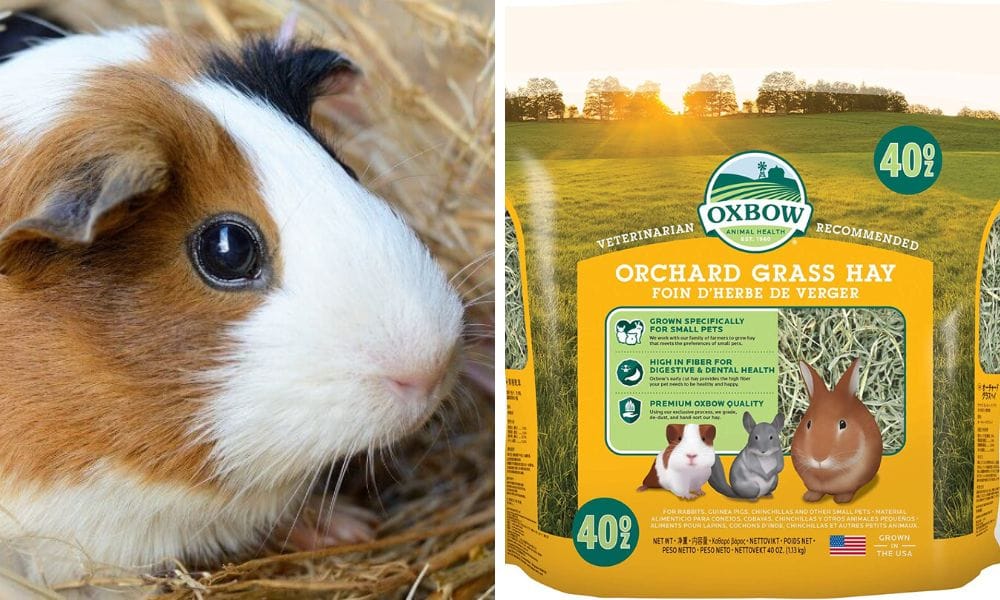
The Role of Hay in Digestion
Hay plays a crucial role in your guinea pig's digestion. The high fiber content helps regulate their digestive system and prevents issues like constipation and diarrhea. Grass hay, such as timothy and orchard grass, is particularly effective in promoting healthy digestion.
Feeding your guinea pig a diet rich in hay ensures they get the fiber they need to keep their digestive tract functioning smoothly. This is especially important for guinea pigs, as their digestive systems are sensitive and can easily be disrupted by the wrong diet.
Hay as Bedding
Hay can also double as bedding for your guinea pig. It provides a soft, comfortable surface for them to rest on and can be easily replaced when soiled. Using hay as bedding is a practical way to ensure your guinea pig always has access to fresh hay.
Orchard grass and timothy hay are excellent choices for bedding due to their soft texture. Just make sure to check the hay regularly and replace it as needed to maintain a clean and healthy environment for your guinea pig.
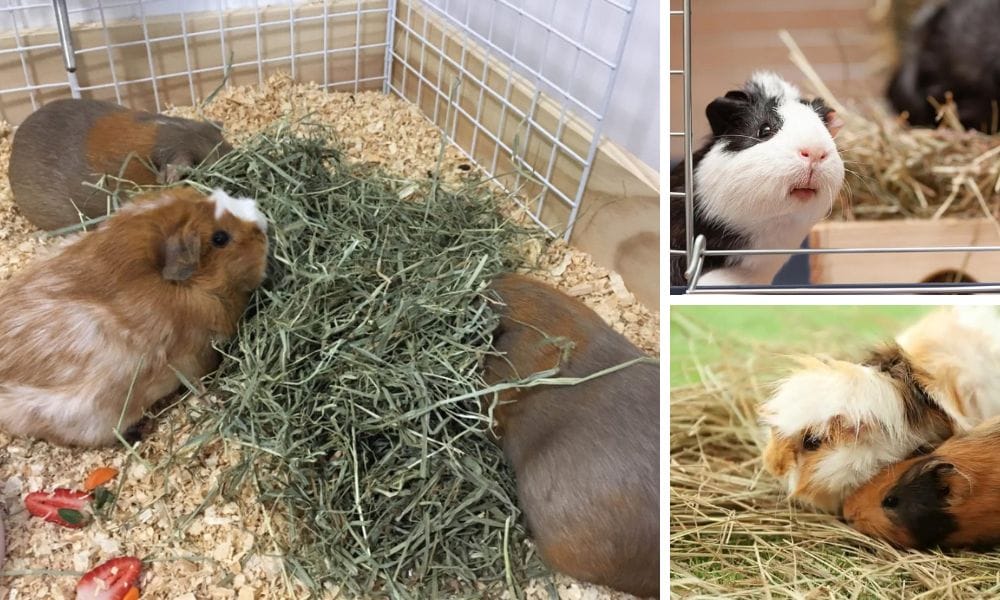
Hay for Other Small Animals
Hay isn't just beneficial for guinea pigs; it's also great for other small animals like rabbits, chinchillas, and hamsters. These animals have similar dietary needs and can benefit from the high fiber content and dental health benefits that hay provides.
For example, rabbits and chinchillas also have continuously growing teeth and need to chew on hay to keep them in check. Providing hay for all your small animals ensures they get the nutrients they need and helps prevent common health issues.
Buying the Best Hay
When it comes to purchasing hay for your guinea pig, quality matters. Look for hay that is fresh, green, and free from mold or dust. The best hay is harvested at the right time and stored properly to maintain its nutritional value.
You can buy hay from pet stores, online shops, or local farms. Brands like Oxbow and Kaytee offer high-quality hay that is specifically designed for small animals. Always check the packaging for information on the hay's origin and quality to ensure you're getting the best for your guinea pig.
Storing Hay Properly
Proper storage is essential to keep hay fresh and nutritious. Store hay in a cool, dry place away from direct sunlight. Use a breathable container to prevent moisture buildup, which can lead to mold.
If you buy hay in bulk, consider dividing it into smaller portions and storing them separately. This makes it easier to manage and ensures that the hay remains fresh for longer. Regularly check the hay for any signs of spoilage and replace it as needed.
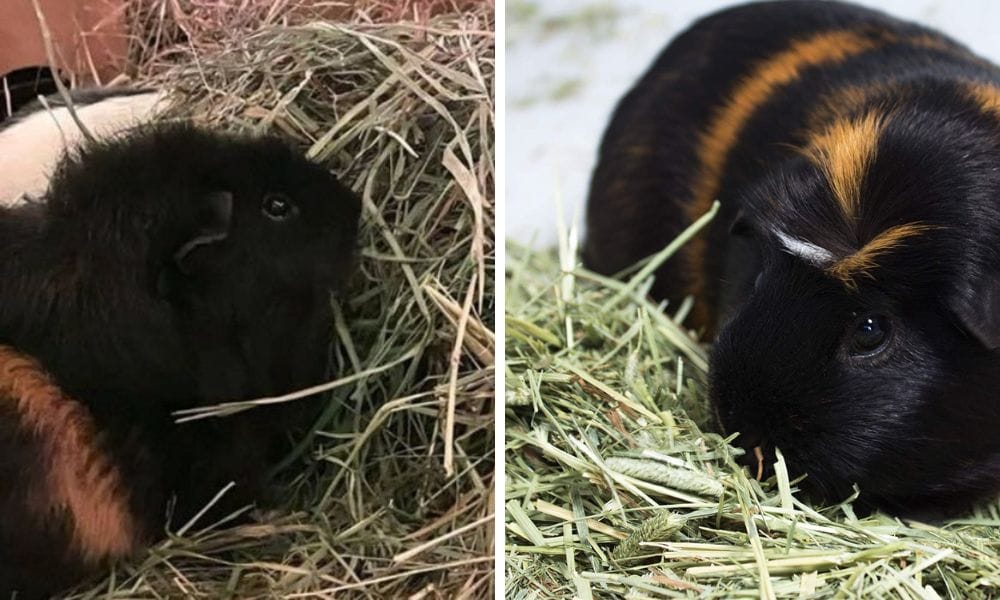
Common Mistakes to Avoid
Feeding your guinea pig the wrong type of hay or not providing enough can lead to health issues. Avoid giving your piggie hay that is too high in protein, like alfalfa, if they are an adult. This can cause weight gain and other health problems.
Another common mistake is not providing enough hay. Guinea pigs need a constant supply of hay to stay healthy, so make sure they always have access to fresh hay. Lastly, avoid using hay that is dusty or moldy, as this can cause respiratory issues.
The Importance of Variety
Variety is the spice of life, even for guinea pigs. Offering different types of hay keeps your guinea pig interested in their food and ensures they get a range of nutrients. Mixing timothy hay with orchard grass or alfalfa can provide a balanced diet and prevent boredom.
Experiment with different combinations to see what your guinea pig likes best. You can also use hay as a treat by hiding it in toys or creating foraging opportunities. This adds an element of fun to their feeding routine and encourages natural behaviors.
Hay as a Treat
Hay can also be used as a treat for your guinea pig. While it's a staple in their diet, you can make it more exciting by mixing it with other treats like dried herbs or flowers. This not only adds variety but also provides additional nutrients.
For example, you can mix timothy hay with dried chamomile or rose petals to create a special treat. Just make sure any additional treats are safe for guinea pigs and given in moderation. This can be a fun way to bond with your guinea pig and keep them happy.
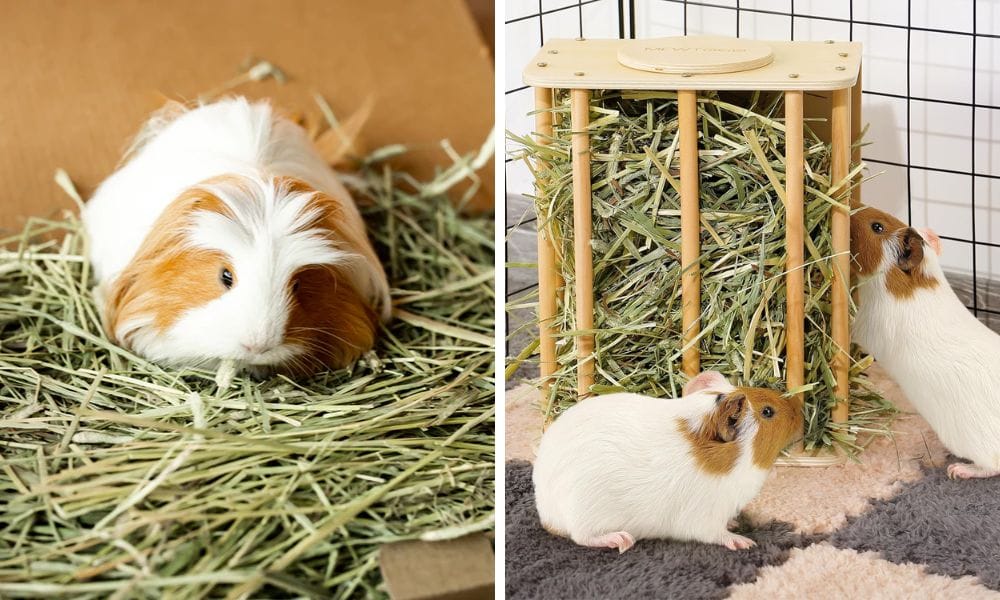
The Environmental Impact of Hay
Choosing hay for your guinea pig can also have environmental benefits. Hay is a natural, renewable resource that can be sustainably harvested. By choosing high-quality hay from reputable sources, you can support sustainable farming practices.
Additionally, using hay as bedding reduces the need for synthetic materials, which can be harmful to the environment. Composting used hay is another eco-friendly option that can benefit your garden and reduce waste.
Summary
Feeding your piggie hay is essential for their health and well-being. It provides necessary nutrients, aids in dental health, and supports digestion. By offering a variety of hay types and incorporating it into their daily routine, you can ensure your guinea pig stays happy and healthy. Remember to buy high-quality hay, store it properly, and avoid common mistakes to get the most benefits for your furry friend.
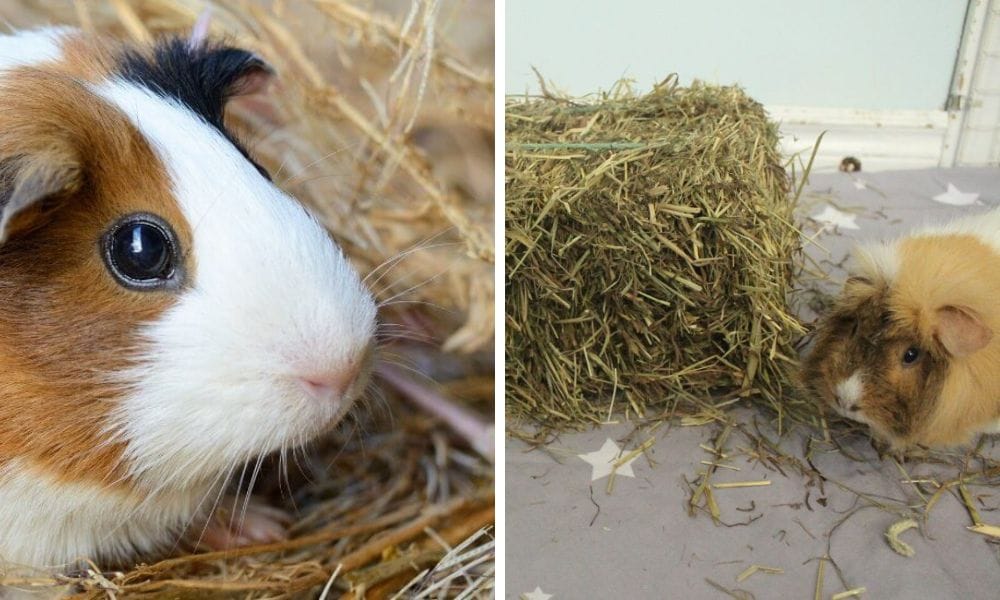
FAQ
1. What type of hay is best for adult guinea pigs?
Timothy hay is the best choice for adult guinea pigs due to its balanced nutritional profile. It is high in fiber and low in protein, making it ideal for maintaining a healthy diet.
2. Can I use hay as bedding for my guinea pig?
Yes, hay can be used as bedding for your guinea pig. It provides a soft, comfortable surface and ensures they always have access to fresh hay. Just make sure to replace it regularly to maintain a clean environment.
3. How much hay should I give my guinea pig daily?
Guinea pigs should have constant access to hay. Ensure their hay rack or feeder is always filled with fresh hay, and replenish it as needed. This ensures they get the necessary nutrients and helps maintain their dental health.
If you want ot learn and discover how to choose the right hay for your guinea pig and why it's so important we are here to help. We have created new blog that can support you to make an informed decition about choseing the right hay for your guinea pig.
Looking for the top hay for your guinea pig? We have done all the research for you and put together our list of top 5 high quality hays for guinea pigs you can buy today. Tap the link below to see the list now!
